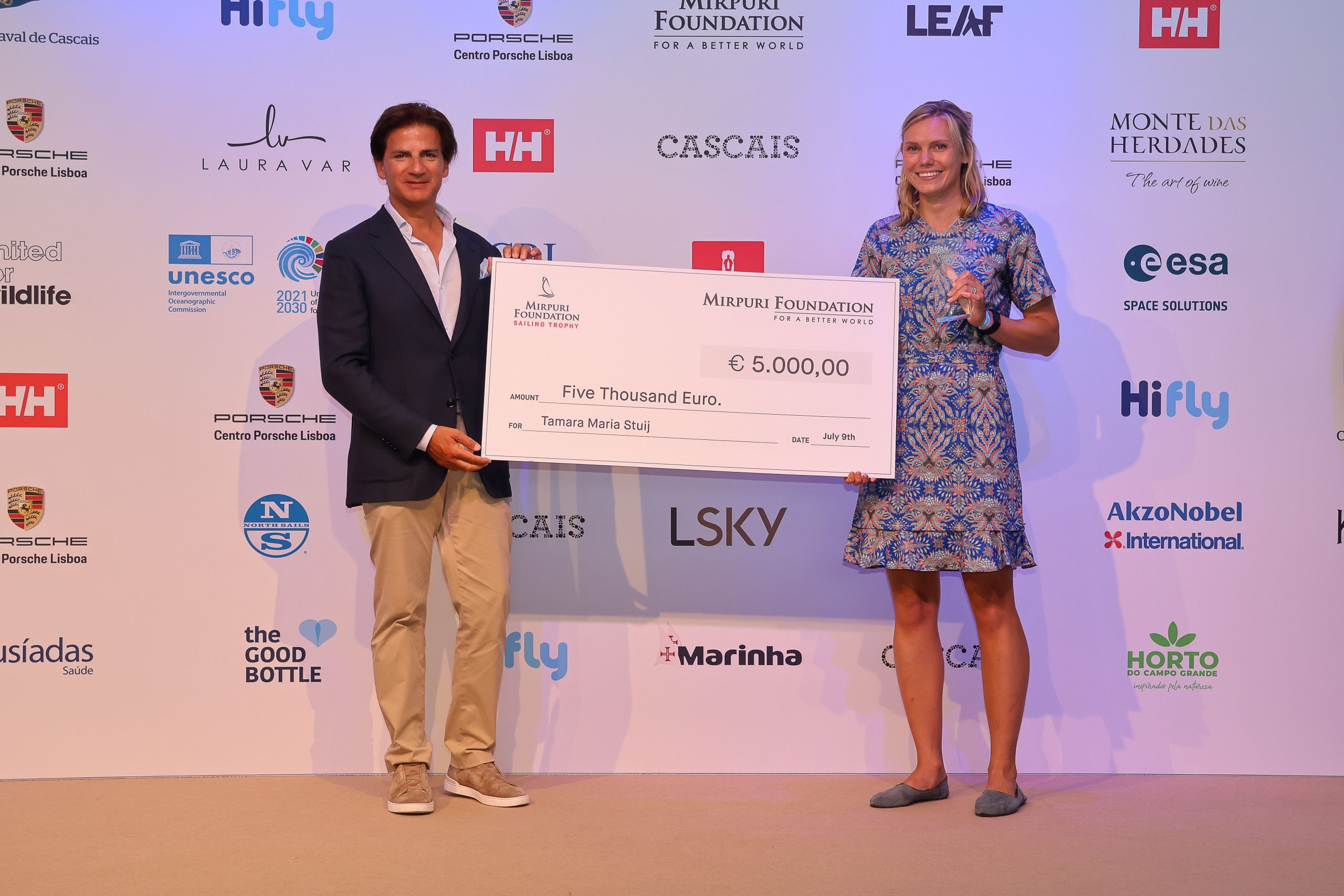On Sunday, July 9th, Tamara Stuij, a doctoral student (CESAM/DBIO) at the Laboratory of Molecular Studies of Marine Environments (LEMAM), received the 2023 Ocean Award from the Mirpuri Foundation. This award marks the collaboration between the Mirpuri Foundation and the International Coral Reef Initiative (ICRI) for the year 2023, with the aim of increasing global awareness and seeking solutions for the preservation of coral reefs worldwide.
According to Tamara Stuij, “It’s great to realize that people care about our oceans and recognize the importance of research in finding solutions to improve the current critical state of coral reefs. Participating in the competition was a great incentive to present my research comprehensively, fun, and understandable. Something that is so important but also quite challenging! Receiving this award is a great honor for me and our team. We are deeply grateful and excited to see that the main focus of this research has received such significant recognition. This distinction serves as strong motivation for us to continue our work with renewed enthusiasm.”
Tamara’s research during her doctoral thesis revealed the importance of humic substances in the resilience of coral reefs. Using microcosm experiments, she showed that corals subjected to thermal stress without humic substances lost color and had lower photosynthetic efficiency. On the other hand, corals treated with humic substances did not lose their color, and humic substances mitigated the adverse effects of heat on coral photosynthetic efficiency. Importantly, humic substances also affected the bacterial communities of corals, enriching potentially beneficial microorganisms. These findings highlight the understudied role of humic substances in reef ecosystems and underscore the importance of preserving natural forests, the primary sources of humic substances in marine ecosystems, to maintain reef health.
The research presented is part of the 4D-REEF project. 4D-REEF is funded by the European Union’s Horizon 2020 research and innovation program under Marie Sklodowska-Curie grant agreement No. 813360.
Text by: Tamara Stuij, translated by CESAM
